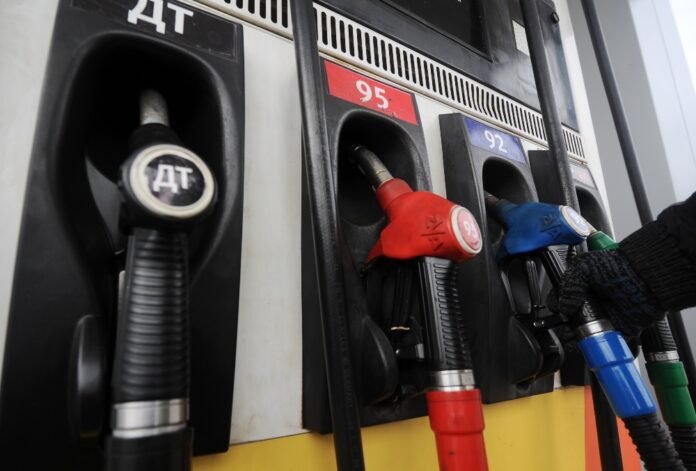The price hike is expected to stop in September, when the seasonal demand for gasoline decreases. But if the dynamics of price increases continue in August, by autumn the cost of gasoline will increase by 6.8%. In addition, it is from September that the fiscal conditions for oil refineries (OR) will worsen, which may reduce the beneficial effect of lower demand on prices in this case.
The government has already taken the necessary measures: it increased the fuel sale standards on the stock market by 1% for large companies, from 12 to 13% for gasoline and from 8.5 to 9.5% for diesel, and also announced a future restriction on the export of gasoline for small and medium-sized companies. These measures apply to the wholesale market, they must increase the volume of supply within the country. But prices here have grown much more noticeably than in retail, since the end of last year the AI-92 brand has increased in price by 75%, and AI-95 – by 61%.
If wholesale prices go down, the retail price increase will stop. But for now, stock prices are growing, and starting in September the damper will be adjusted (the mechanism for paying refineries from the budget based on the difference between export prices and the indicative prices established by the State for fuel when is supplied to the domestic market). Payments will be cut in half. In July, its total amount for all providers amounted to 110.4 billion rubles. That is, under the same conditions as in July, in September the refineries will receive only 55.2 billion rubles.
Out of the blue, the amount by which the amount of compensation will be reduced will not be taken. This means that for refineries it will be costs, a decrease in profits or even losses. It will be possible to compensate them with an even greater increase in exports or with an increase in prices within the country. The export opportunities of companies are limited by logistics; Furthermore, due to Western sanctions, Russian companies had to rebuild the entire supply chain and find new buyers. On the other hand, after restricting the export of petroleum products for small and medium-sized companies, the large players will have some new opportunities, but the large companies were the main suppliers of fuel for the domestic market. In order to increase exports and maintain the volume of deliveries to the domestic market, they will have to increase the volume of oil refining, and here everyone has different opportunities. In addition, the depreciation of the ruble plays against the supply of fuel to the domestic market.
According to Anna Krysina, head of the DELOVOY PROFIL Group’s financial consulting practice, Russia’s decline in production under the OPEC+ deal and oil exports is offset by an increase in exports of petroleum products, supported by the ruble fall. And since the ruble has already lost more than 30% since January, it is more profitable for oil refining companies to sell oil products abroad, even at a discount, than to offer them in Russia.
In addition to the lack of supply in the domestic market, a generally positive factor for the Russian economy, rising oil prices, is driving up the price of gasoline.
Ural oil export prices have risen by around 10% in three months, says Vladimir Chernov, an analyst at Freedom Finance Global. The buffer mechanism assumed payments to refineries precisely to reduce the difference between export and domestic prices, and refineries could supply fuel to the domestic market cheaper than for export. And since September it will turn out that export prices have increased and payments have decreased.
On the other hand, the decrease in demand after the summer season should not be underestimated, said Dmitry Gusev, vice-president of the Supervisory Board of the Association of Trusted Partners. In mid-September, as a rule, a significant drop in demand at gas stations by 20-30% begins. Gusev clarified that in Russia there are problems with logistics – the delivery of fuel to a buyer in the Far East and in the southern regions. Now we have about half a million tons of diesel and the same volume of gasoline is on the way, which also affects prices.
In his opinion, to reduce the pressure from below on fuel prices, it is necessary to continue raising the standards for their sales on the stock market. In addition, we need to adjust our fiscal maneuver (Great fiscal maneuver: reduce the export duty to zero and increase the tax on mineral extraction), we need to stimulate oil refining within the country to make it profitable for companies to export non-crude oil , but to increase the volume and depth of oil refining.
From Krysina’s point of view, the strengthening of the ruble may slow down the rise in gasoline prices, something quite expected when oil prices are fixed above $80 per barrel. In addition, the depreciation of the ruble, which has already occurred, should stimulate exports in sectors other than oil, which will increase the inflow of foreign exchange earnings for exporters and provide the ruble with necessary support. Therefore, no factors are observed for a greater increase in the price of petroleum products.
Chernov is less optimistic, he believes that from September 1, 2023 to the end of 2026, refinery buffer payments will be halved, oil companies will begin to take this reduction into account in wholesale prices in advance. Therefore, in August, retail gasoline prices at service stations will continue to grow. It is possible to stop the rise in prices only by changing the financial benefits for refiners, for example by increasing export duties or allowing tax breaks, he clarifies.
In any case, the growth in gasoline prices should slow down in September due to lower demand. It is true that from October we can expect the start of a seasonal rise in diesel prices. Therefore, we only dream of peace.

